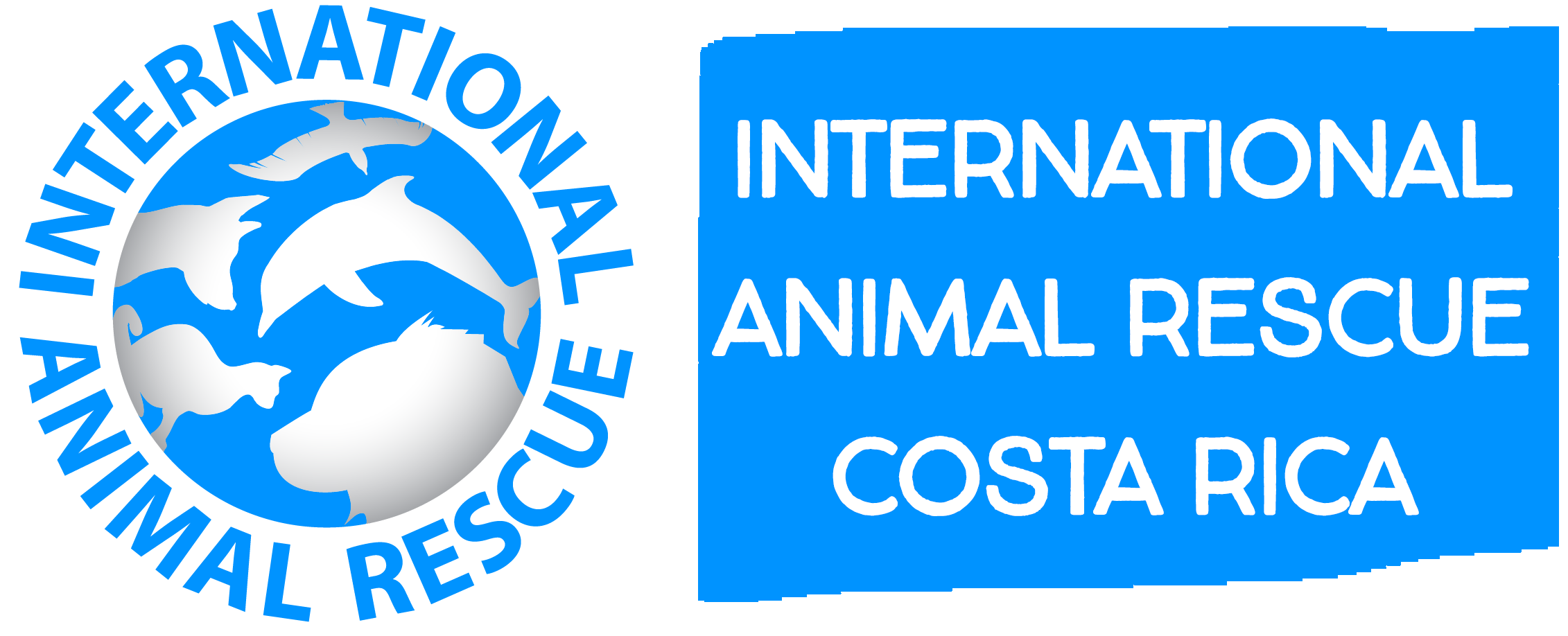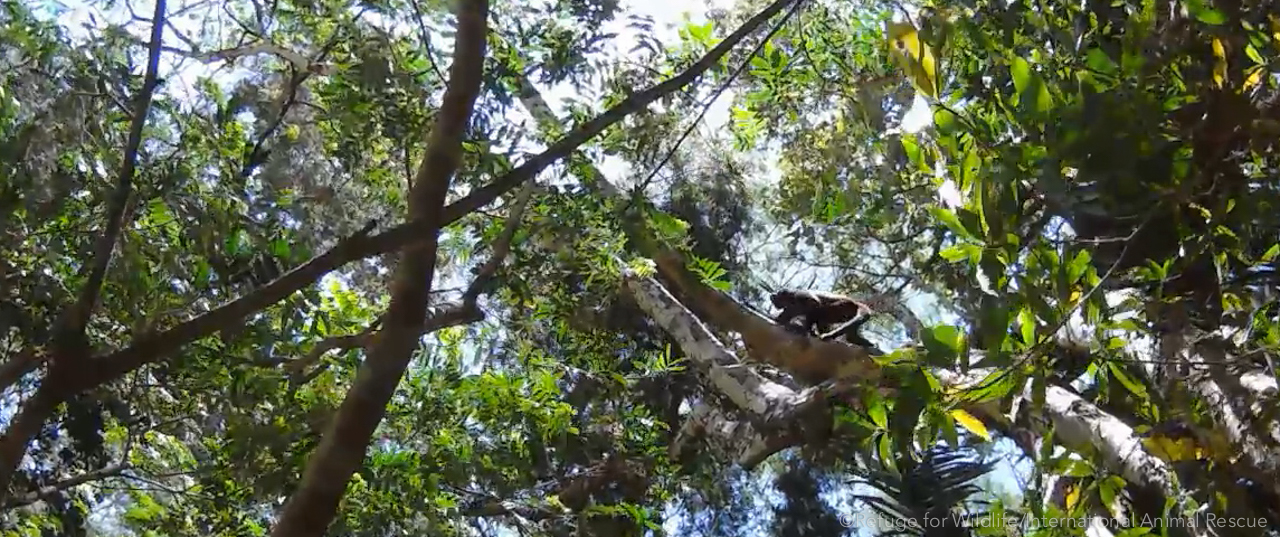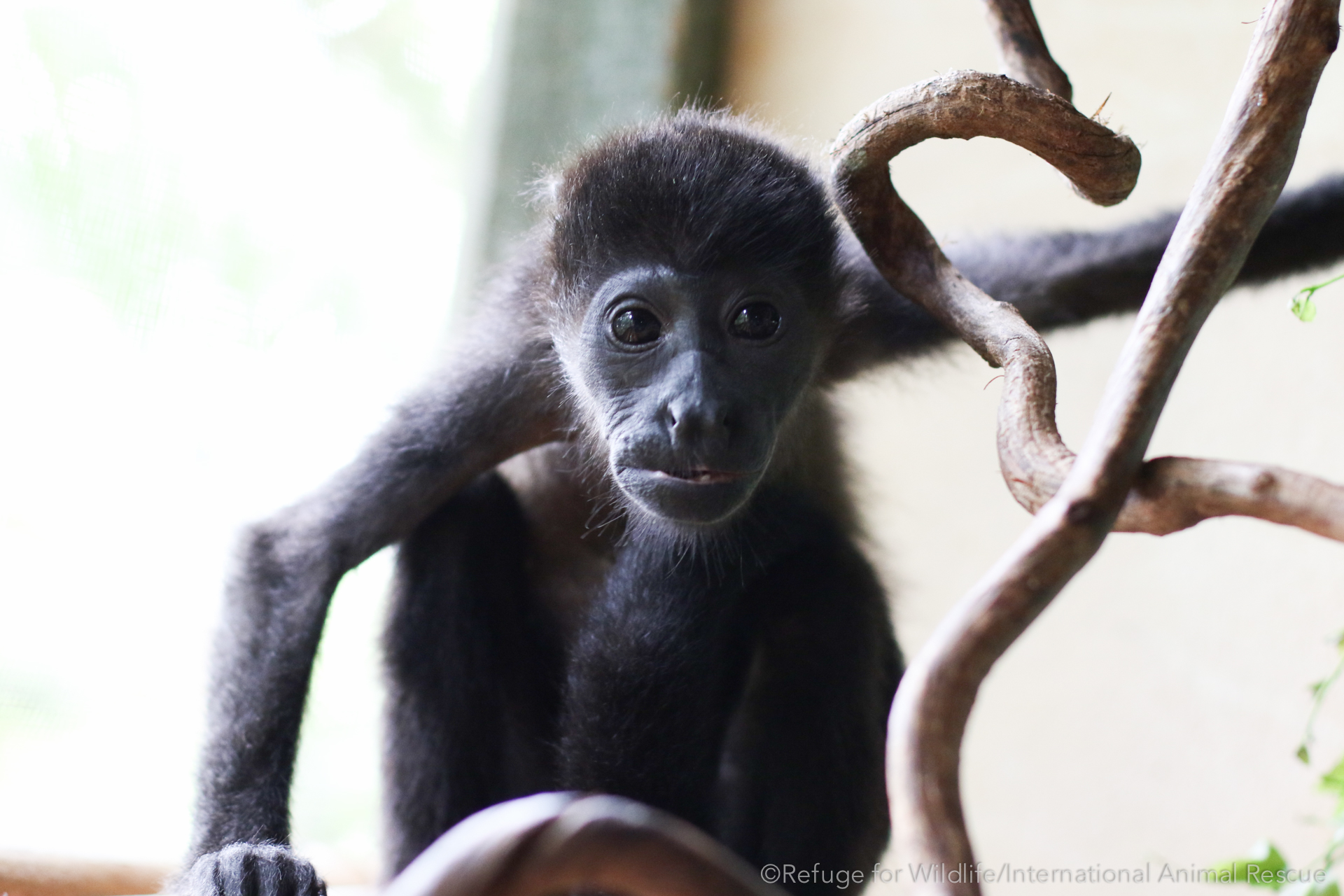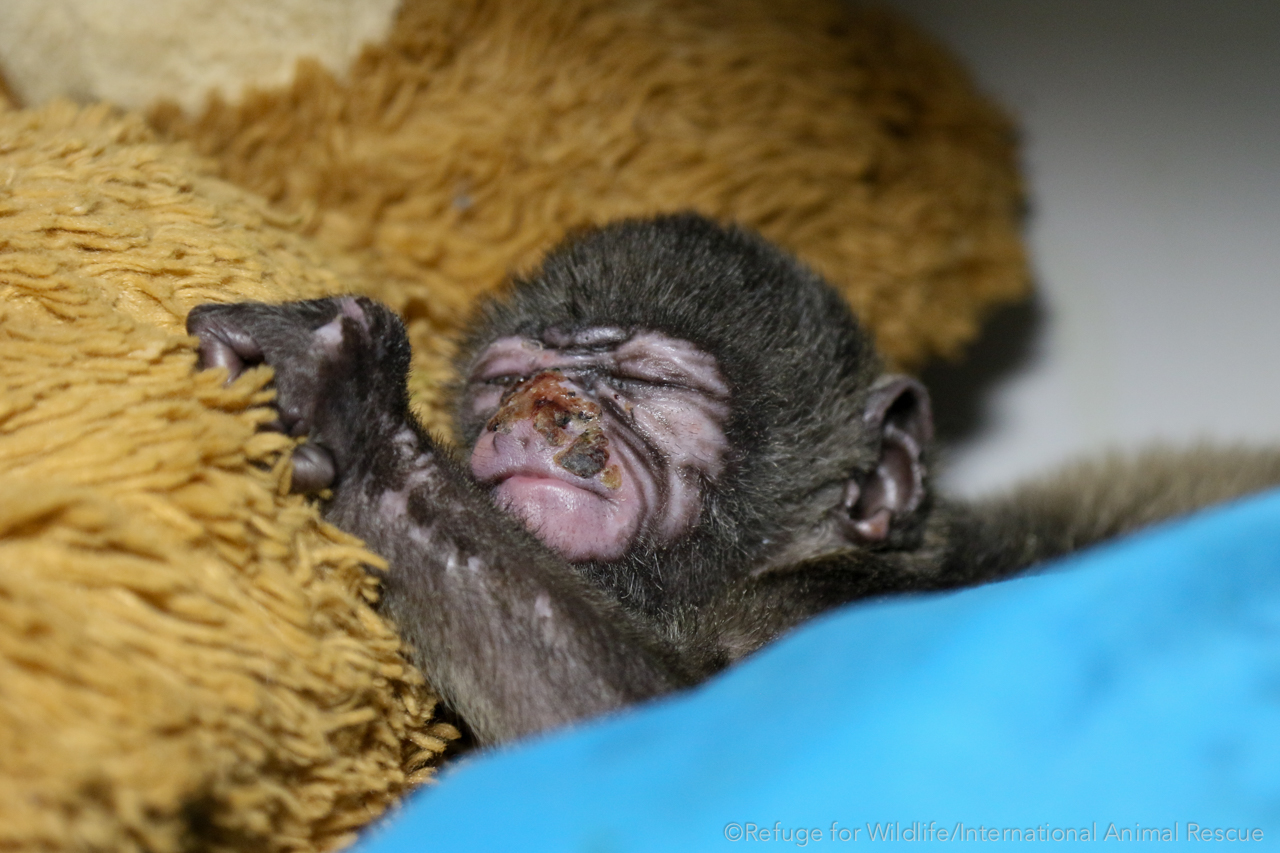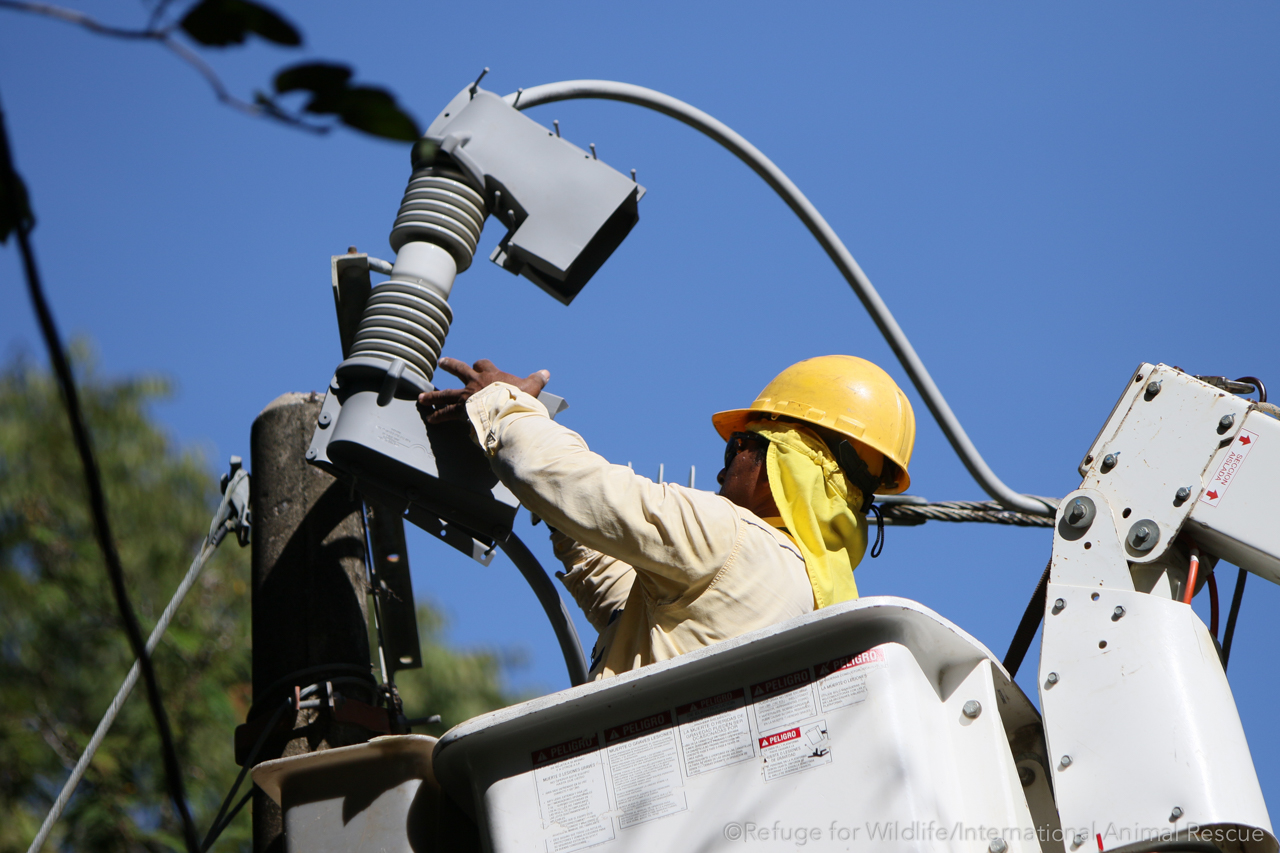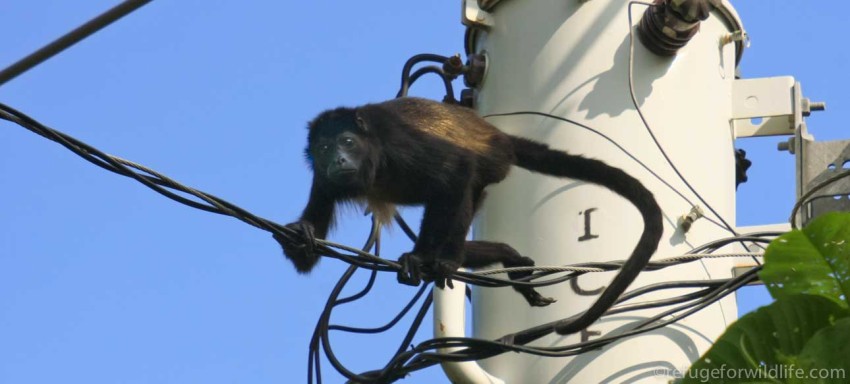
What To Do In A Wildlife Emergency
MONKEY ELECTROCUTIONS – WHAT SHOULD YOU DO?
Many people have asked us what they should do if they find a monkey being electrocuted on an uninsulated electrical wire or transformer. It’s important to know the best way you can help our wildlife in need. Always follow these important steps:
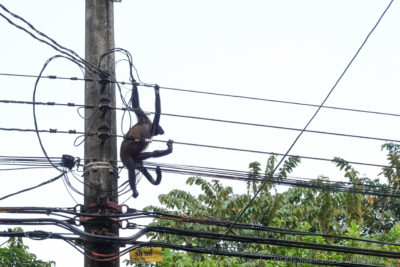
1.CALL 8824 3323 – This is our wildlife emergency hotline – we will come and rescue the monkey and provide immediate medical attention.
2. DO NOT try to knock the monkey down if it’s being electrocuted on uninsulated wires or power transformers! You can be killed!
You risk being killed by electrocution if you try to help an animal who is stuck on a live electrical wire or transformer. Do not use bamboo poles, tree branches, palm fronds, or anything at all to reach the monkey. You WILL get electrocuted.
We know it is hard to watch an animal in pain, but you cannot help without special equipment.
IAR Costa Rica has a special fiberglass pole that will not conduct electricity and is safe to use. We will come prepared with all the equipment needed to rescue the monkey.
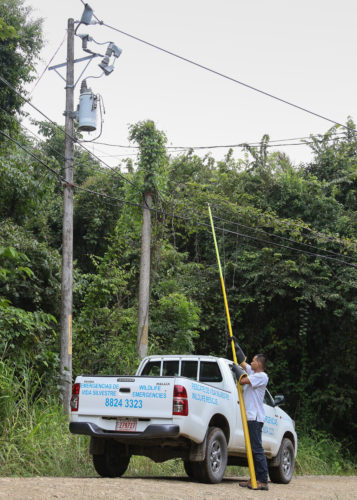
3. Try your best to keep people, cars, and dogs away from the area until we arrive. This is just in case the monkey falls or runs out into traffic.
4. Do your best to scare the rest of the monkeys away from the transformer or uninsulated cables until help arrives otherwise more monkeys might get injured or die.
If the monkey is stuck on the transformer or wires, the rest of the monkey troop may try to help. Loud shouting usually works – only do this if they are in immediate danger as this kind of human interaction can be very stressful for wild animals.
5. If the monkey is injured and on the ground, DO NOT TOUCH IT.
This is especially important for adult males but applies to all wild animals who may attack when they are frightened. Always keep your distance and remember that your safety comes first. We have special gloves and equipment to rescue an adult monkey that may be aggressive.
SPECIAL CASES – MOTHERS HOWLERS AND INFANTS
If the monkey is a mother and is unconscious on the ground with a young baby on her back/stomach DO NOT TOUCH IT. NEVER take a baby away from its mother. Even if you think the mother is dead, it can be very traumatic for a baby and mother to be separated. 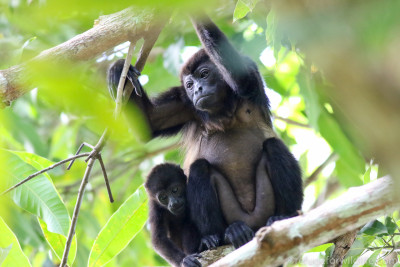 Often the mother is simply knocked unconscious and is not dead and then becomes very aggressive when she sees her baby has been taken. Leave them together, keep your distance, try to keep them safe from dogs and cars, and wait for IAR Costa Rica.
Often the mother is simply knocked unconscious and is not dead and then becomes very aggressive when she sees her baby has been taken. Leave them together, keep your distance, try to keep them safe from dogs and cars, and wait for IAR Costa Rica.
If the mother’s injuries are life-threatening, but she is conscious and trying to escape into the jungle, try to block her path. If she escapes with the baby and dies, the baby will die too. Do not try to catch her, she has sharp teeth and can injure you. Wait for IAR Costa Rica.
If the mother is dead and the baby wants to run away, try to block its path. Call IAR Costa Rica and describe the size of the baby. An older baby that is not nursing may survive with its troop, but a younger baby that needs its mother’s milk will not survive in the wild. The other members of the troop will not adopt the baby, they will not feed the baby, and the alpha male will eventually kill the baby. Call IAR Costa Rica’s wildlife emergency hotline 8824 3323.
OTHER INJURED WILDLIFE
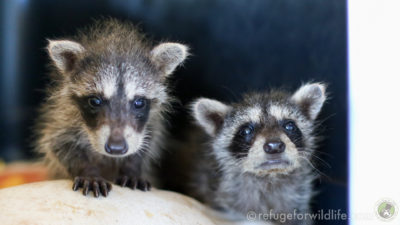
If you find other injured or orphaned wildlife like coatis, raccoons, opossums, owls, parrots, lizards, margays, ocelots, always call our wildlife emergency hotline 8824-3323 for assistance. We do not rescue domestic animals – for help with cats or dogs, please call your local vet or dog/cat rescue center.
Never touch a wild animal. An injured animal can be especially aggressive because it is frightened. Keep your distance and call us. Please try to keep people, pets, and cars away from the area until we arrive.
HELPING “ABANDONED” BABY ANIMALS
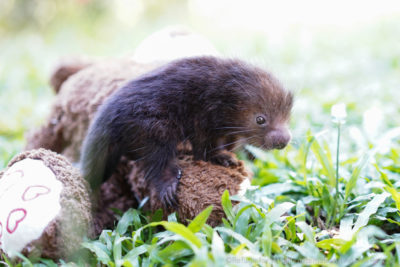
If you find a baby animal without its mother, do not assume that it has been abandoned. Most arboreal wildlife, like squirrels, anteaters, skunks, pizotes, and wildcats, leave their infants to go and forage for food – this is normal behavior so please do not kidnap their babies! Please wait and see if the mother returns. Wildlife are very good parents, they do not abandon their young.
Sometimes a mother is chased away by a dog or other predator (or even loud noises from humans like chainsaws) and is forced to leave her babies. She will usually return when it is safe for her to do so.
Unfortunately, sometimes the baby might wander off or even fall from the nest, but the mom always comes back and will find the baby if she hears it crying.
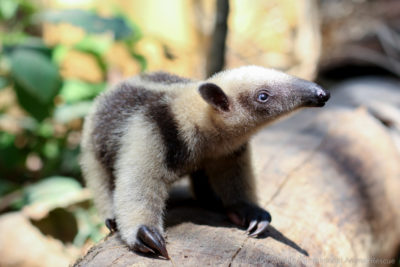 Please call us if you feel the infant is in an unsafe location, like in the middle of the road or near predators. The infant might need to be carefully moved to a safer location or put in a makeshift nest in a tree. If the infant is crying, the mom is likely to return quickly to avoid him being detected by predators, so keep your distance so she isn’t afraid to come back and get her baby. Remember to keep your dogs and cats away so the mother will not be scared.
Please call us if you feel the infant is in an unsafe location, like in the middle of the road or near predators. The infant might need to be carefully moved to a safer location or put in a makeshift nest in a tree. If the infant is crying, the mom is likely to return quickly to avoid him being detected by predators, so keep your distance so she isn’t afraid to come back and get her baby. Remember to keep your dogs and cats away so the mother will not be scared.
Infants have a higher chance of survival if they stay with their mothers. For this reason, please DO NOT take infants away from their habitat.
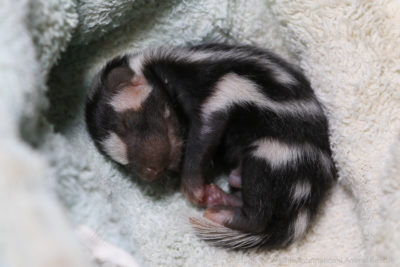 Never take babies away from their mothers. Even if you think the mother is dead – some animals, like opossums are famous for playing dead when they’re scared and can hurt you. If the mother has died or the infant is injured then it will need our help. Call 8824-3323 immediately and we will come and assist.
Never take babies away from their mothers. Even if you think the mother is dead – some animals, like opossums are famous for playing dead when they’re scared and can hurt you. If the mother has died or the infant is injured then it will need our help. Call 8824-3323 immediately and we will come and assist.
If you wait several hours and the mother still has not returned for her infant, then please call us. Although wildlife do not abandon their infants, the mother might have been killed and will not return. If this is the case, the infant will need help from us.
BABY BIRDS
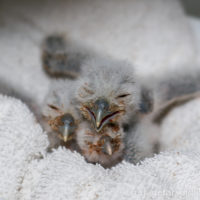 It is a common misconception that baby birds found on the ground need help. Most of the time they are fledglings learning to fly and simply need a bit of time and practice. Don’t worry, their parents are nearby collecting food and will come and help out. Keep pets and people away. If the bird is in a dangerous location, you can move the bird to a safer place.
It is a common misconception that baby birds found on the ground need help. Most of the time they are fledglings learning to fly and simply need a bit of time and practice. Don’t worry, their parents are nearby collecting food and will come and help out. Keep pets and people away. If the bird is in a dangerous location, you can move the bird to a safer place.
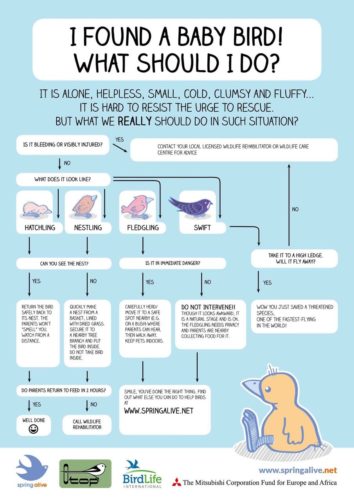 Please use the attached guide “I Found A Baby Bird! What Should I do?” created by Spring Alive when you spot baby birds (click to enlarge).
Please use the attached guide “I Found A Baby Bird! What Should I do?” created by Spring Alive when you spot baby birds (click to enlarge).
Hatchlings (birds with no feathers) or nestlings (birds with short, fluffy feathers) that have fallen out of the nest need to be placed back into the nest – don’t worry, the parents won’t care if the baby “smells” like you. If the nest cannot be found, you can make a nest (a basket with some leaves works well) and tie it to a nearby tree. Keep pets away and stay a safe distance so that the parents can come back – if they don’t come back in 2 hours, call IAR Costa Rica.
If you find an injured bird – broken wing, bleeding – then they will need help. Call IAR Costa Rica. If the bird has flown into your window and is not bleeding, give the bird some space to recover. Usually, in 5-10 minutes the bird will be feeling better and will fly off.
INFANT MONKEYS FOUND ALONE
If you find an infant monkey alone and crying on the ground, look to see if its family troop is nearby. 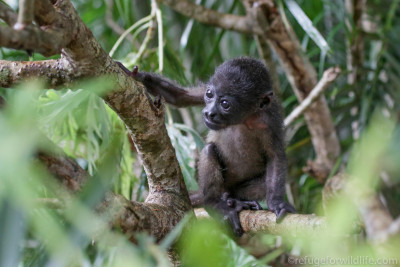 Infant howlers often fall from trees. A baby has a better chance of surviving with its mother. Do not remove a baby from the wild when the troop is nearby. Call IAR Costa Rica’s emergency hotline first.
Infant howlers often fall from trees. A baby has a better chance of surviving with its mother. Do not remove a baby from the wild when the troop is nearby. Call IAR Costa Rica’s emergency hotline first.
An infant howler might be easy to capture and hold, but we advise against this as even babies will bite humans and they can carry parasites and illnesses that humans can catch. Call us, we can advise you on what do to – every case is different, but it is safer if you do not touch wild animals. Do NOT try to feed the baby anything. All wildlife need special nutrition and feeding them the wrong thing can cause them serious harm or even death.
Some monkeys, like howler monkeys, are small and might look like babies, but are old enough to be on their own, so please do not remove them from their habitat. If you’re worried, call us and we can help.
NEVER TRY TO RESCUE AND REHABILITATE WILDLIFE ON YOUR OWN
It is illegal to capture and sell or keep wild animals as pets in Costa Rica. This includes monkeys, parrots, squirrels, raccoons, owls, bats, anteaters, opossums, birds, porcupines, and all other creatures that live free in the wild.
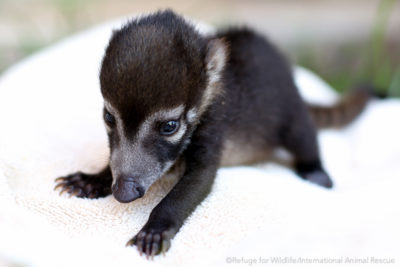 Domesticating wildlife can ruin all chances of them ever being returned to the jungle. They become too tame and dependent on humans and will then have to spend their lives in a cage so they do not harass residents and businesses. Most wildlife, especially monkeys, will become aggressive as they get older and may hurt you. Although baby animals are incredibly cute, they will grow up to become aggressive when they reach sexual maturity and can injure humans. And once they are dependent on humans, they can never be released. Do not ruin their chance of freedom, call IAR Costa Rica.
Domesticating wildlife can ruin all chances of them ever being returned to the jungle. They become too tame and dependent on humans and will then have to spend their lives in a cage so they do not harass residents and businesses. Most wildlife, especially monkeys, will become aggressive as they get older and may hurt you. Although baby animals are incredibly cute, they will grow up to become aggressive when they reach sexual maturity and can injure humans. And once they are dependent on humans, they can never be released. Do not ruin their chance of freedom, call IAR Costa Rica.
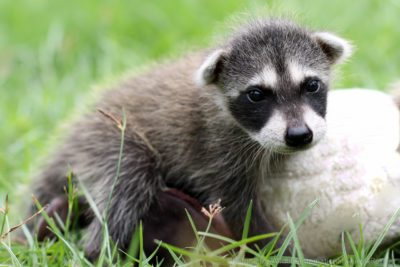 Do not encourage a human-wildlife “friendship” by providing food for the wildlife – in the long run, you will not be helping them. If you start to feed wild animals like raccoons, pizotes, squirrels, etc they will become dependent on humans, become aggressive and even break into your house (raccoons are famous for this) to steal food. Infant wildlife needs special nutrition and feeding them the wrong thing can cause serious harm or death.
Do not encourage a human-wildlife “friendship” by providing food for the wildlife – in the long run, you will not be helping them. If you start to feed wild animals like raccoons, pizotes, squirrels, etc they will become dependent on humans, become aggressive and even break into your house (raccoons are famous for this) to steal food. Infant wildlife needs special nutrition and feeding them the wrong thing can cause serious harm or death.
It is always best to let registered rescue centers regulated by MINAE help an injured or orphaned animal. All wildlife need special diets and care. Do what’s right for the animal and call IAR Costa Rica to ensure it receives the best chance to be rehabilitated and released.
DEAD WILDLIFE
It is very sad, but you might come across a dead animal. Usually, they have been hit by a car, but sometimes it’s due to electrocution or animal attacks.
If you find a dead animal:
- Check to see that it is really dead. If it’s alive, call IAR Costa Rica.
- If it’s a female animal, look for an infant (but avoid touching it). Many times an infant howler will hide underneath its dead mother. Howler infants cry when they are away from their mother so if you hear a baby howler
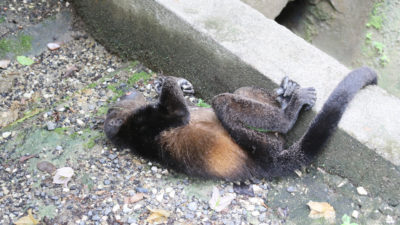 crying at the location where you’ve found a dead female, it is likely her baby and needs our help – call IAR Costa Rica.
crying at the location where you’ve found a dead female, it is likely her baby and needs our help – call IAR Costa Rica. - If it’s a dead female marsupial, check her pouch for infants. Be careful with opossums, they like to play dead and are very convincing at it – do not get too close.
- Look up and check to see if there are any power lines or transformers above – perhaps the animal (usually a monkey) was electrocuted. If that is the case, many more animals may die at the same spot. Contact us and report the death so we can work towards making the location safe.

